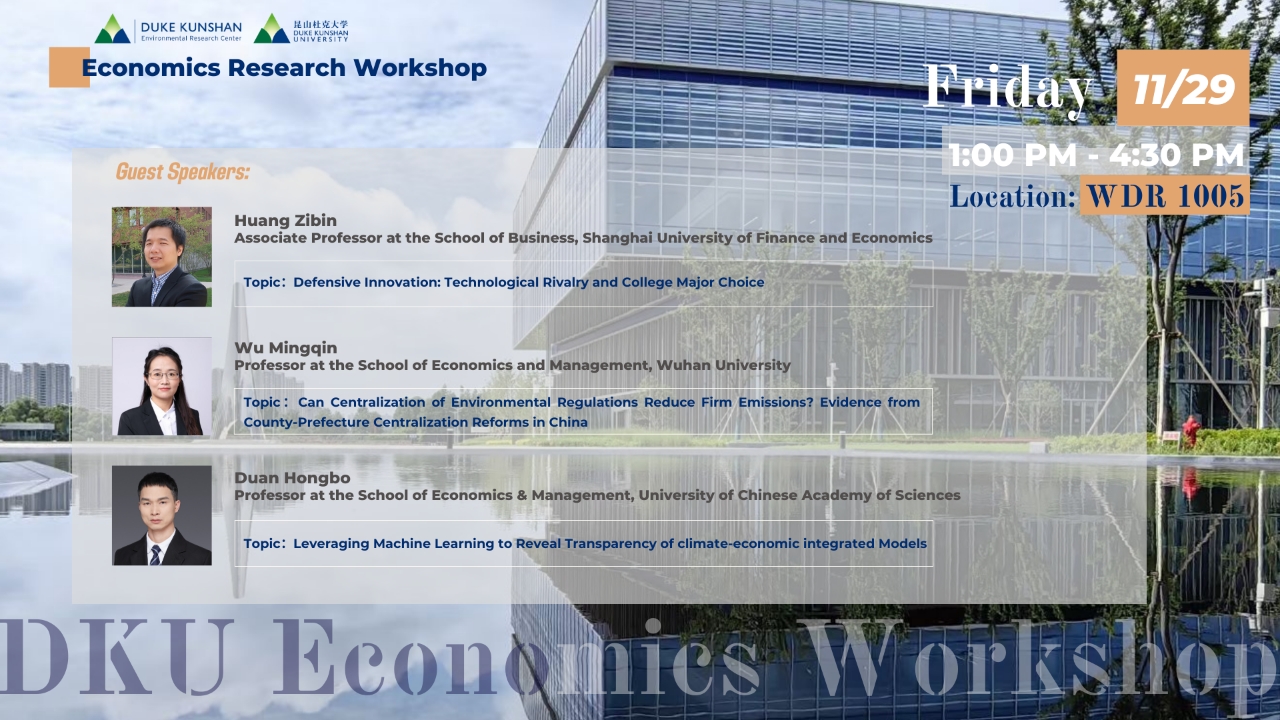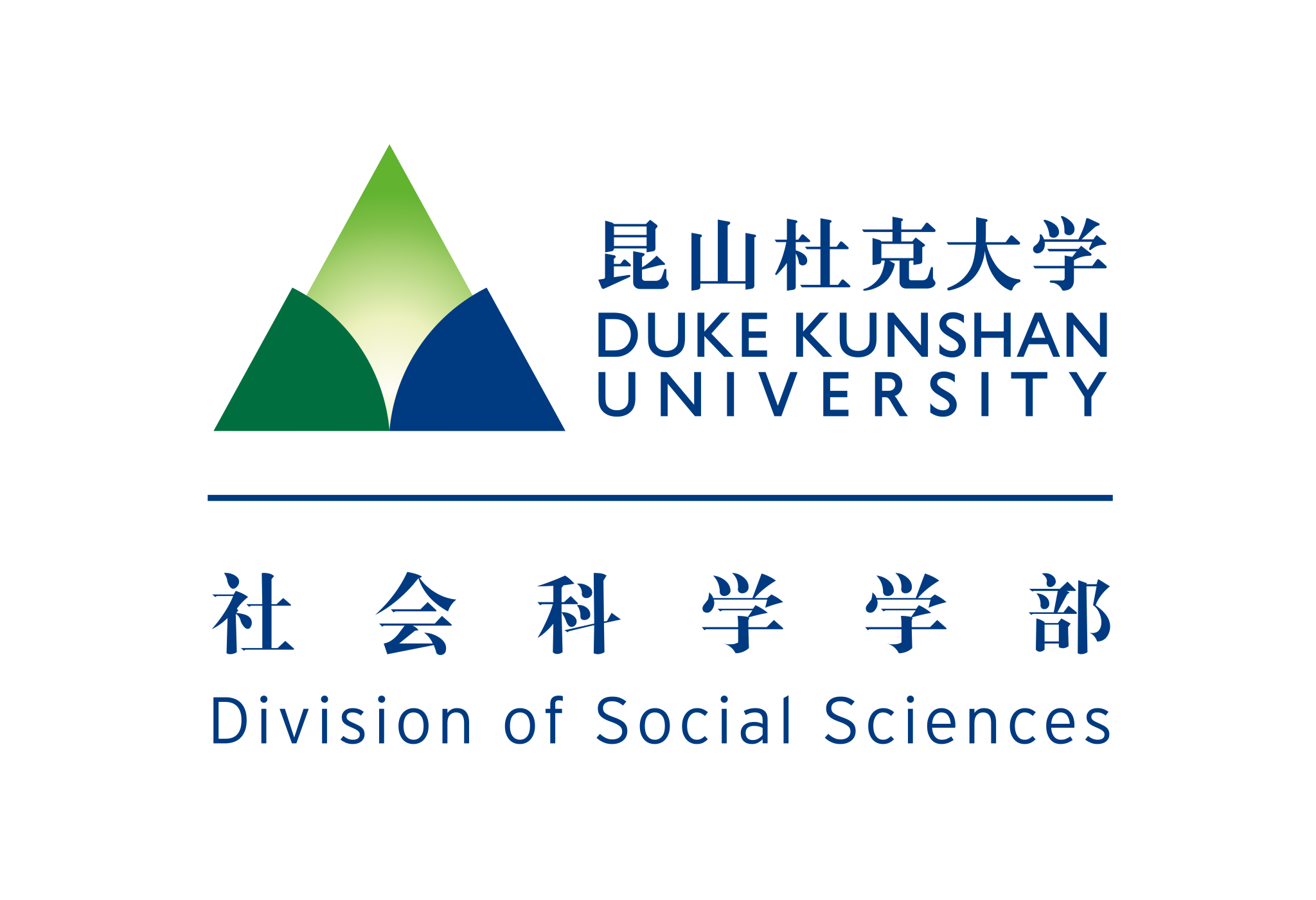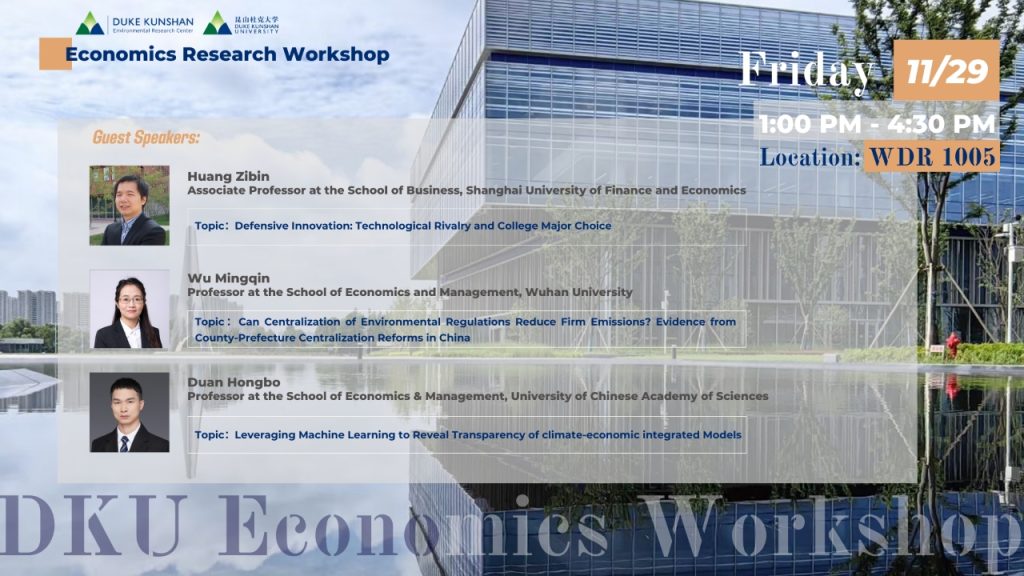
Econ Research Workshop
Abstract:
Defensive Innovation: Technological Rivalry and College Major Choice
This paper studies the responses of students’ college major choices to trade tensions in the context of the U.S.-China trade war. By analyzing granular college admission data, we find that the U.S. tariffs and the export control entity list targeting China’s high-tech industries have unexpectedly raised admission scores for STEM majors. A 1% increase in export tariff exposure results in a 2%–3% rise in standardized admission scores for school-major combinations, particularly in engineering disciplines and elite universities. This “defensive innovation” phenomenon is driven by firms’ increased investments and stronger government support in affected industries, leading to greater demand for high-skilled workers. As U.S. trade sanctions rise, firms receive more subsidies and offer higher wages for R&D occupations, incentivizing students to pursue areas critical to China’s technological progress.
Can Centralization of Environmental Regulations Reduce Firm Emissions? Evidence from County-Prefecture Centralization Reforms in China
Drawing on a natural experiment generated by prefecture-level centralization reforms in China in the early 2000s, we study whether a centralized regulatory system delivers better environmental outcomes in a developing country context. We examine the impact of centralization reforms on firm air pollution emissions using a difference-in-differences estimation strategy. We find that centralization reform reduces firm air pollution intensities in total waste air, SO2, and soot. This effect is robust when we control for contemporaneous environmental policy and when we use alternative differences-in-differences estimations. Empirical tests on mechanisms reveal that pollution reduction is mainly due to increased pollution removals during the end-of-pipe treatment stage while there is little evidence that centralization increases firm scale of production, productivity, efficiency, and innovation efforts. We show that such firm responses are likely a function of increased regulatory enforcement brought by the reform. Finally, we test whether a centralization reform drives local firms away (i.e., a spillover effect) and we find no supporting evidence.
Leveraging Machine Learning to Reveal Transparency of climate-economic integrated Models
Explaining the sources of errors in the IAM ensembles and identifying drivers based on model fingerprints are critical to model post-assessment robust decision support. This paper establishes a framework for model error attribution and post-assessment based on multi-method integration of fingerprint diagnostics, machine learning, and econometric testing. The input errors show that the differences between the variables were much more significant than the differences between the models, with more minor errors for the economic and energy supply categories and more significant errors for the energy demand and emissions variables. Sensitivity analyses of the LSTM model indicate that early values of variables such as carbon dioxide, coal, and solar energy will have a coercive effect on the long-term path of carbon emissions. It can be seen that reviewing and correcting the initial inputs of the models and calibration based on historical data are essential to improve the reliability of the model output results. Further, machine learning-based model interpretation provides valuable references for further model exploitation and policy making.
Biography:
Huang Zibin, Associate Professor at the School of Business, Shanghai University of Finance and Economics, holds a Ph.D. in Economics from the University of Rochester. His primary research areas include labor economics, the economics of education, and urban economics. Professor Huang is interested in China’s urbanization, population mobility, and the educational issues of children from migrant families.
Mingqin Wu, Professor in the School of Economics and Management, Wuhan University. Her research areas include development economics and environmental economics, focusing on firm pollution, firm innovation, social security, and government accountability. She has published in journals such as the Journal of Development Economics and Journal of Environmental Economics and Management.
Duan Hongbo, Professor in School of Economics & Management, University of Chinese Academy of Sciences. His research areas includes resource and environmental economics, integrated assessment modeling and big carbon data analysis.
To register for this event email your details to shuqian.xu@dukekunshan.edu.cn
Date And Time
2024-11-29 @ 04:30 PM




